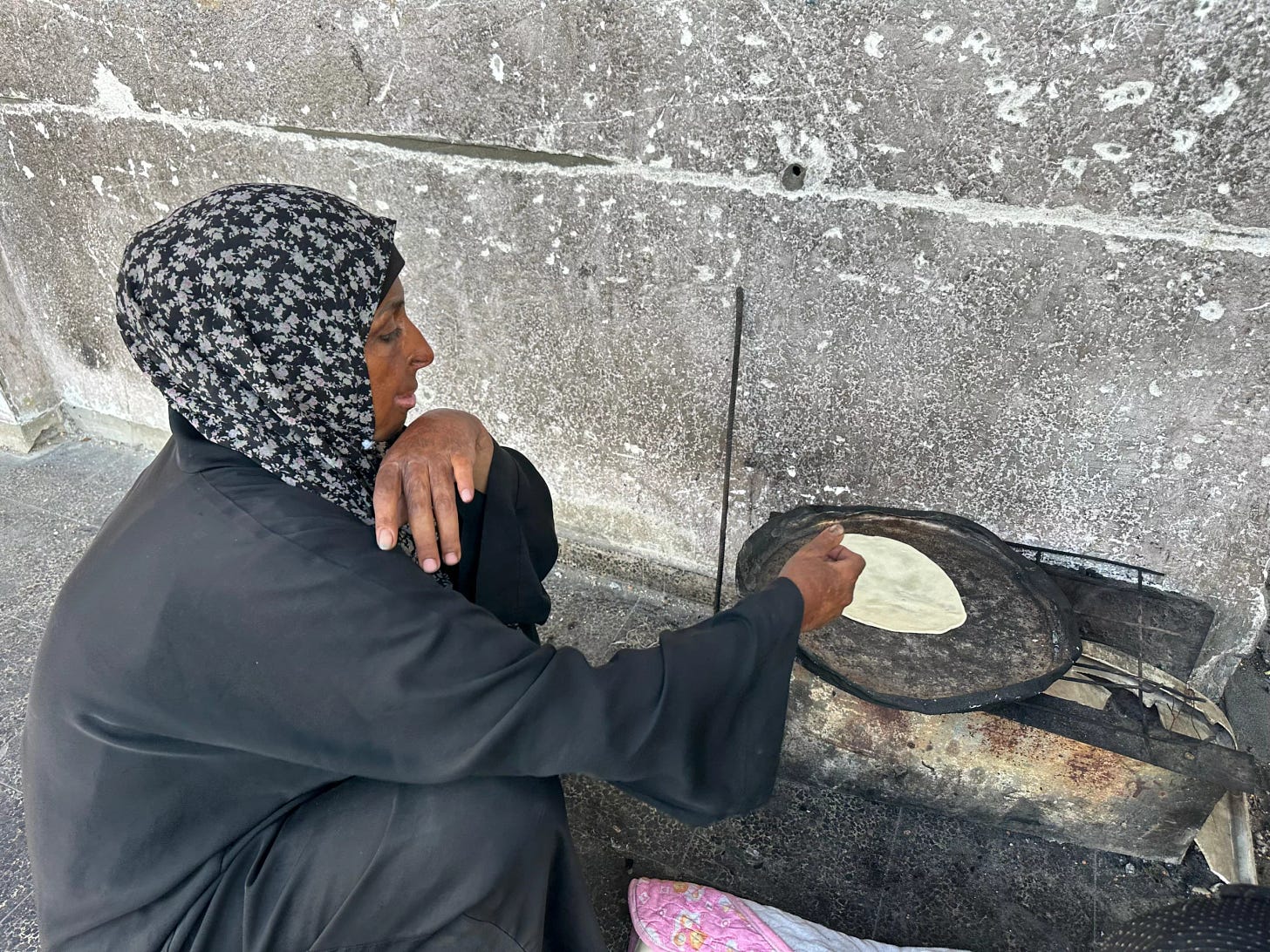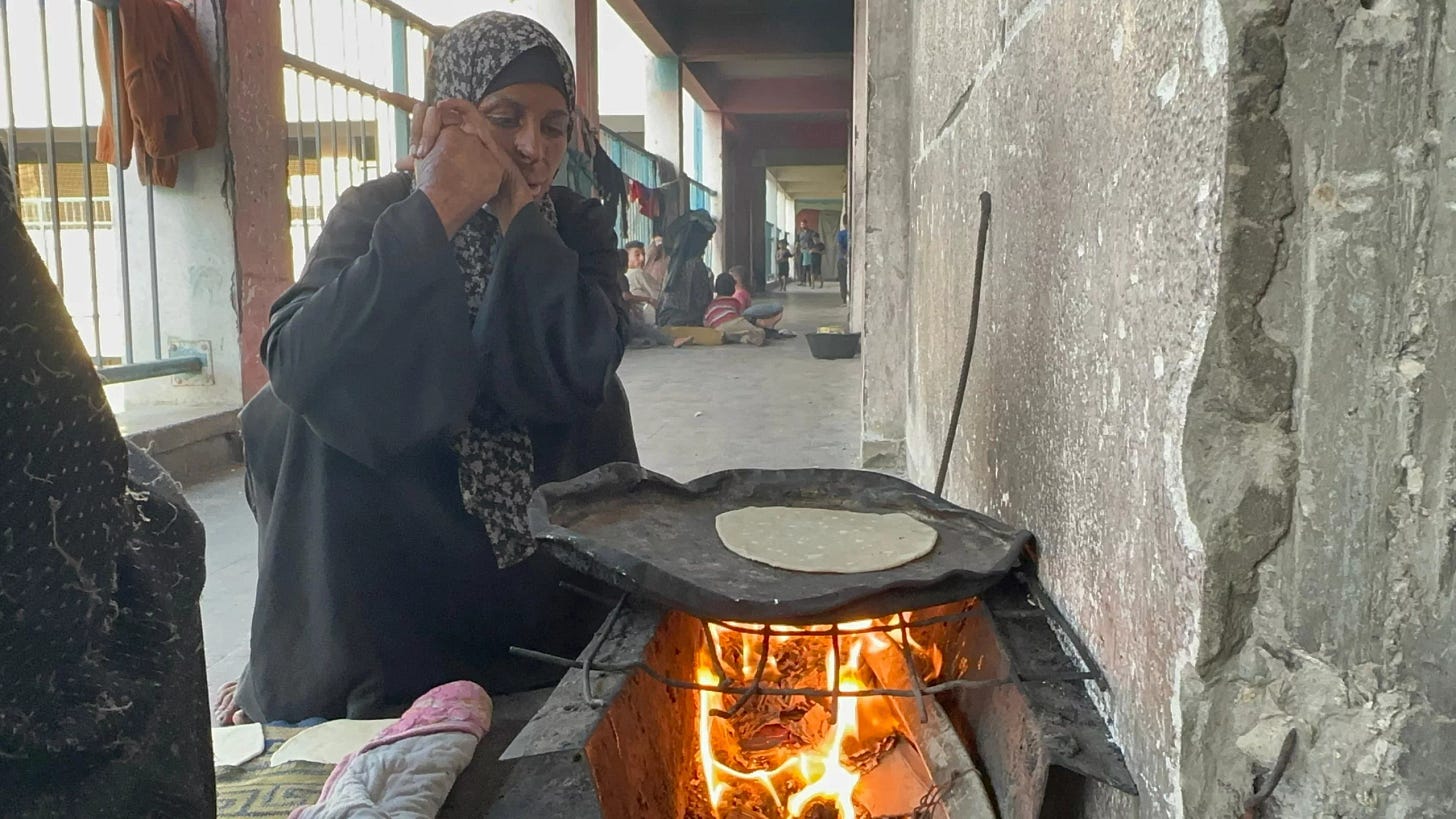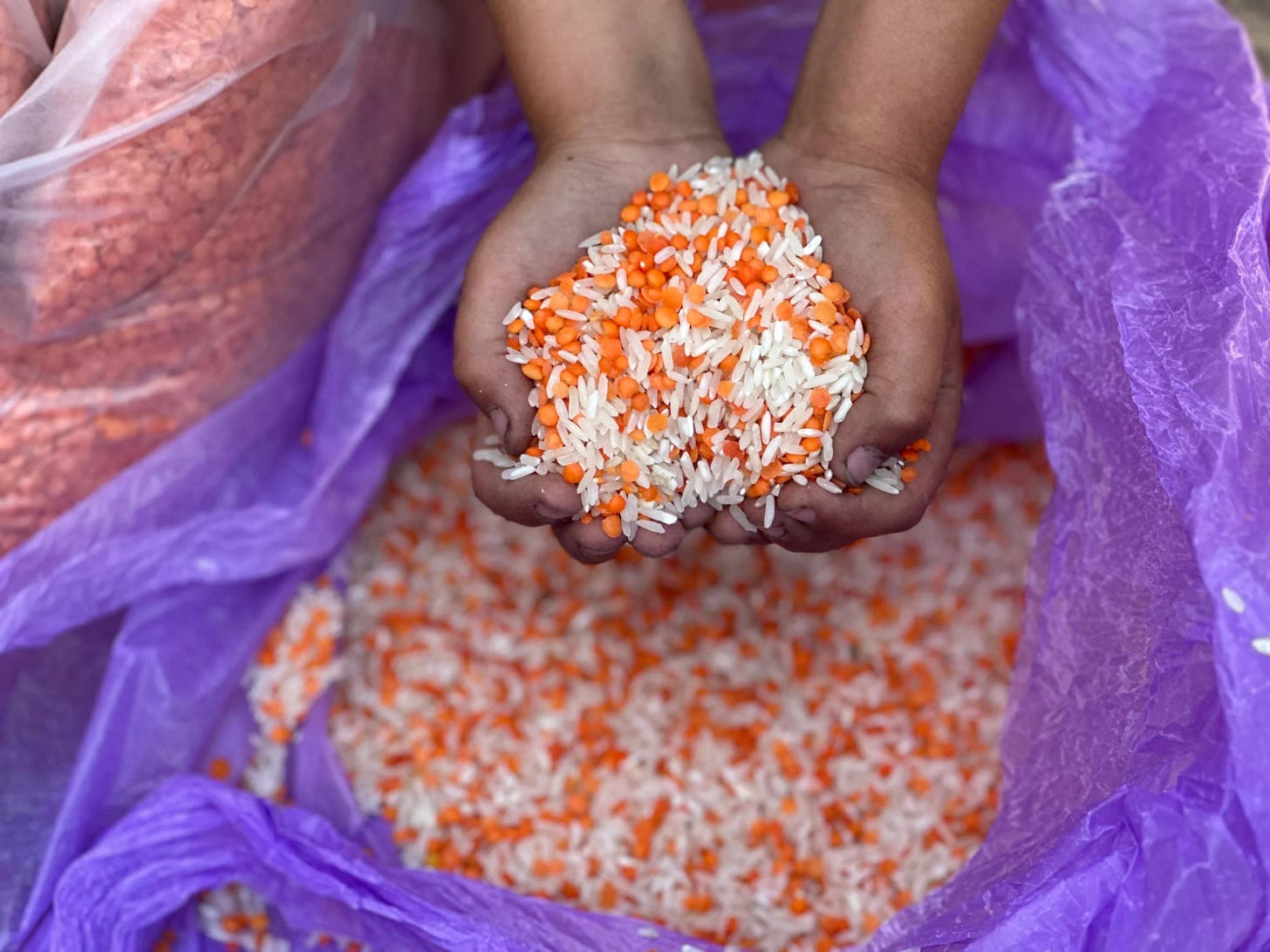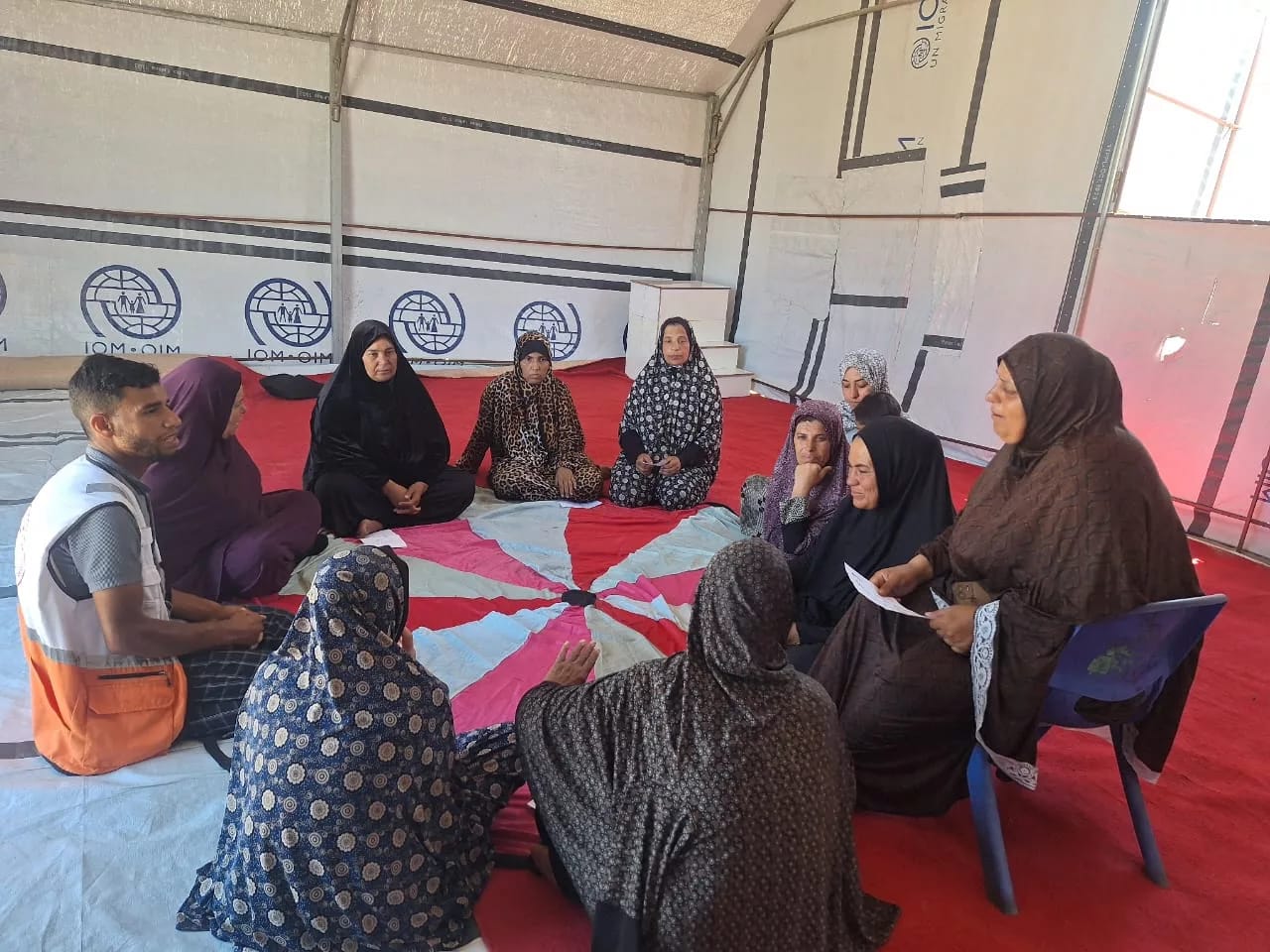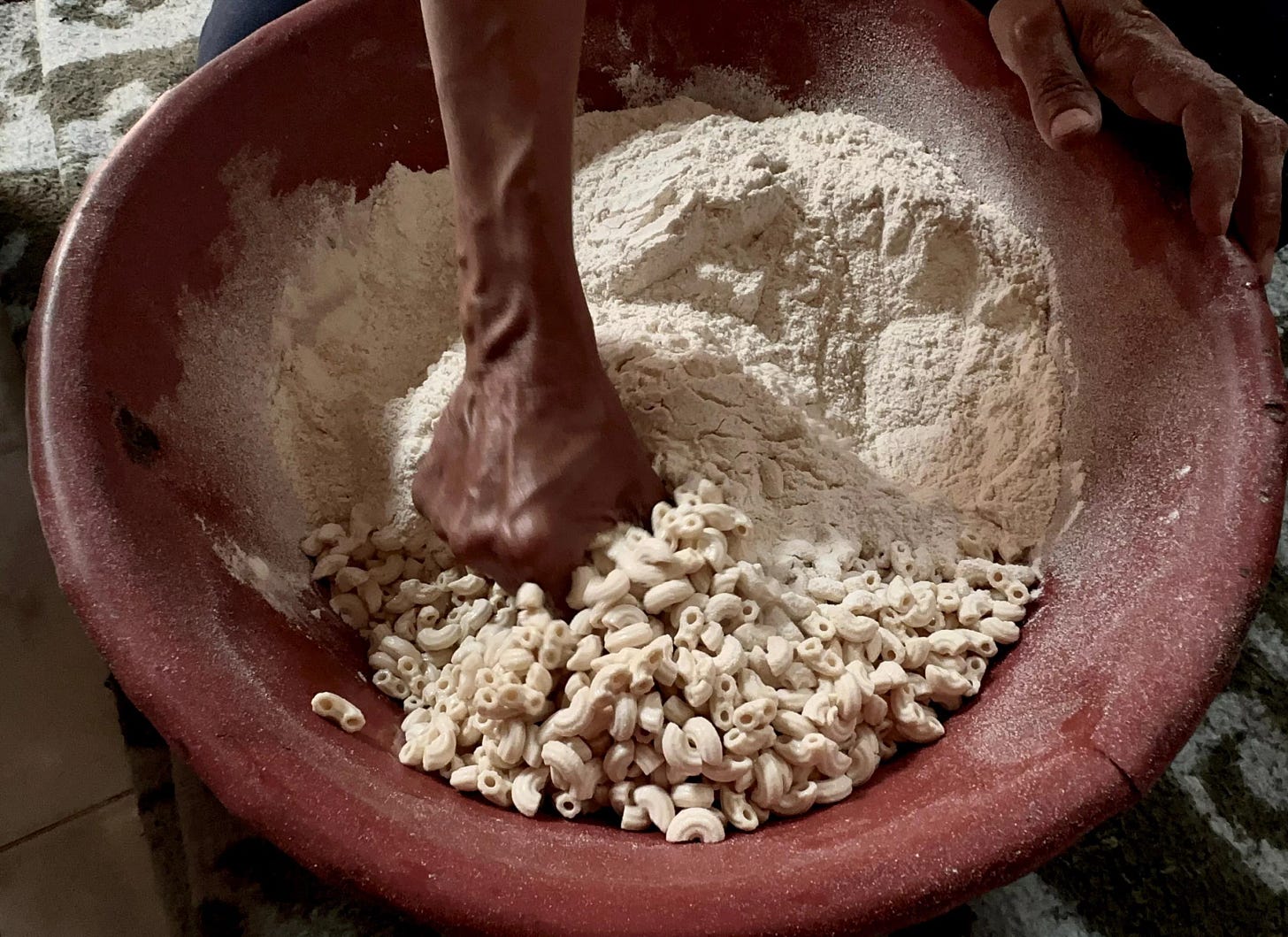In the heart of an escalating humanitarian catastrophe, Gaza’s women are facing relentless hunger and mounting burdens that exhaust both body and spirit. According to UN reports, more than 557,000 women are experiencing extreme food insecurity amid a war that has severed all lifelines, turning the simple act of securing food into a daily battle.
In tents and shelters, mothers cook with dangerous, primitive methods, sharing the meager scraps of aid that never suffice. They forgo their own meals for their children and shoulder the weight of care, fear, and the collapse of essential services—an unbearable intersection of starvation and violence, where even the barest conditions for dignified survival have disappeared.
Ikram Nasr, 45, displaced from Rafah to Khan Younis, has found herself in an unrelenting struggle—not just as a mother and homemaker, but as a refugee who has relocated multiple times in search of a supposed “safety” beneath Israeli fire.
“This war has placed me in brutal circumstances I’ve had to adapt to for the sake of my children,” she told Noon Post, “but I carry a deep, persistent anguish. What little we have doesn’t meet our basic needs.”
Ikram suffers from multiple health conditions, has undergone several surgeries, and during the war, gave birth to a child after a 13-year pause in childbearing. Now she faces a double-edged psychological battle trying to secure milk and diapers for her newborn.
The United Nations Population Fund warns of “catastrophic childbirth outcomes” in Gaza due to famine, health system collapse, and severe psychological trauma, all threatening the survival of an entire generation. The agency's data shows a dramatic drop in births—from 29,000 in the first half of 2022 to just 17,000 in the same period of 2025.
With healthcare in freefall, the World Health Organization states that more than one-fifth of pregnant and nursing women in Gaza are suffering from malnutrition, significantly increasing the risk of complications and death. The Palestinian Ministry of Health recorded 220 stillbirths in the first half of this year alone.
Ikram recounts her endless attempts to prepare meals for her children. She ground lentils, rice, and pasta into flour substitutes—until those, too, ran out. “I’ve fed my kids dishes I never imagined I would—like a fried egg patty made from canned peas, or combining two cans of beans just to fill their stomachs.”
The dire food shortages pushed her to approach U.S.-designated aid points, which the Israeli military claimed were distributing food parcels. Instead, she says, they turned into “death traps” where hungry civilians were deliberately targeted with live bullets, artillery, and missile strikes.
According to the UN, Israeli forces have killed more than 1,000 Palestinians attempting to reach food aid since the beginning of operations by Food for Humanity (GHF), most of them near its distribution sites.
Despite the ongoing massacres targeting aid seekers, Ikram persists. Getting flour to bake bread for her five children has become a celebration in itself. Even after her brother was killed in one of these attacks, she continues to risk her life—torn between watching her children die of hunger and braving death herself.
“I’ve gone to those distribution points 16 times,” she says. “Each time, I fight a psychological war. I fear I’ll return to my children in the same bag I used to carry food. I’m terrified they’ll wake up one day and find no one left to care for them.”
Ikram risks her life daily to find milk for her four-month-old, as baby formula has virtually disappeared from Gaza. She dreads her son becoming one more malnutrition statistic documented by the Health Ministry. “All this devastation has wrecked my mental health,” she says with sorrow. “It’s affected how I treat my children—I shout, I lose control, sometimes I hit them. I hate that, but I can’t help it.”
Sumayya al-Najjar, 33, displaced from eastern Khan Younis to the coastal area of al-Mawasi, describes her life bluntly: “I’m living a nightmare I never imagined. Life in a tent is not a life. There’s no cooking gas, I rely on firewood. There’s no food, no aid. My baby cries from hunger, and I’m completely helpless.”
Tears stream down her face as she continues: “My heart shattered when my two-year-old asked for a piece of bread and I couldn’t give him one. There’s no flour, and when it’s available, it’s outrageously expensive. My husband is blind and has no source of income. Israel has blocked aid for four months and sealed the crossings.”
Every day, Palestinian mothers are forced to make decisions no human should have to face. Should they share the tiny amount of food among all, or save it for a worse day? Should they take their child out of the smoke-filled tent despite the danger, or risk his health by staying inside? Each choice is cruel; each detail has become part of a never-ending struggle.
Dr. Amina Hamad, a clinical psychologist, explains how the war has left a deep mark on women’s mental health. “They’ve become more tense, more silent, and quicker to lose their temper—not because they’re weak, but because the pressure is suffocating them.”
She adds, “I’ve observed clear changes in how they interact with their husbands, children, and even themselves. Many feel guilty for failing to protect or provide for their kids, leading to ongoing self-blame.”
She warns of rising cases of chronic depression, insomnia, panic attacks, and psychosomatic disorders such as IBS and hypertension, along with deteriorating self-esteem and growing fear for the future. All of this is compounded by the absence of adequate mental health support.
Dr. Hamad stresses that women urgently need sustained psychological care, but the reality is bleak—health institutions have been destroyed, and specialized personnel are scarce or missing altogether.
She concludes: “What’s striking is the Palestinian woman’s ability to improvise. I’ve seen mothers making baby formula from rice and water just to soothe their starving children. Amid the destruction, the mother remains the family’s anchor—hiding her tears behind a fractured smile, carrying life forward.”
Echoing her words is Dr. Nivin Abdelhadi, a psychologist with the Palestinian Red Crescent’s mental health unit, who provides services in displacement camps. She confirms the presence of chronic depression, insomnia, panic attacks, and psychosomatic disorders among the women she supports, and underscores the crippling lack of mental health infrastructure.
Dr. Abdelhadi shared that her mental health team works tirelessly in the field, even after four of their volunteers were killed and many others injured while delivering aid to displaced families.
She added that the unit has reached over 30,500 women through various initiatives—ranging from psychological first aid to therapy sessions, emotional support, and consultations.
Abdelhadi reiterated that ongoing support is crucial, yet the devastating lack of resources and institutional collapse make that nearly impossible in many areas.
In a message to women’s rights and humanitarian organizations around the world, Dr. Abdelhadi called for urgent attention to the plight of Palestinian women. “Like women everywhere,” she said via Noon Post, “they deserve peace, security, and a safe environment for themselves and their families.”
Between an improvised lentil meal and a panic attack in a refugee camp, Gaza’s women are holding the last line of defense. They battle hunger and despair, devising impossible ways to shield their children from slow death. Yet despite the cries for help, food remains scarce, psychological support nearly nonexistent, and the war machine continues to crush what little remains of their days.


